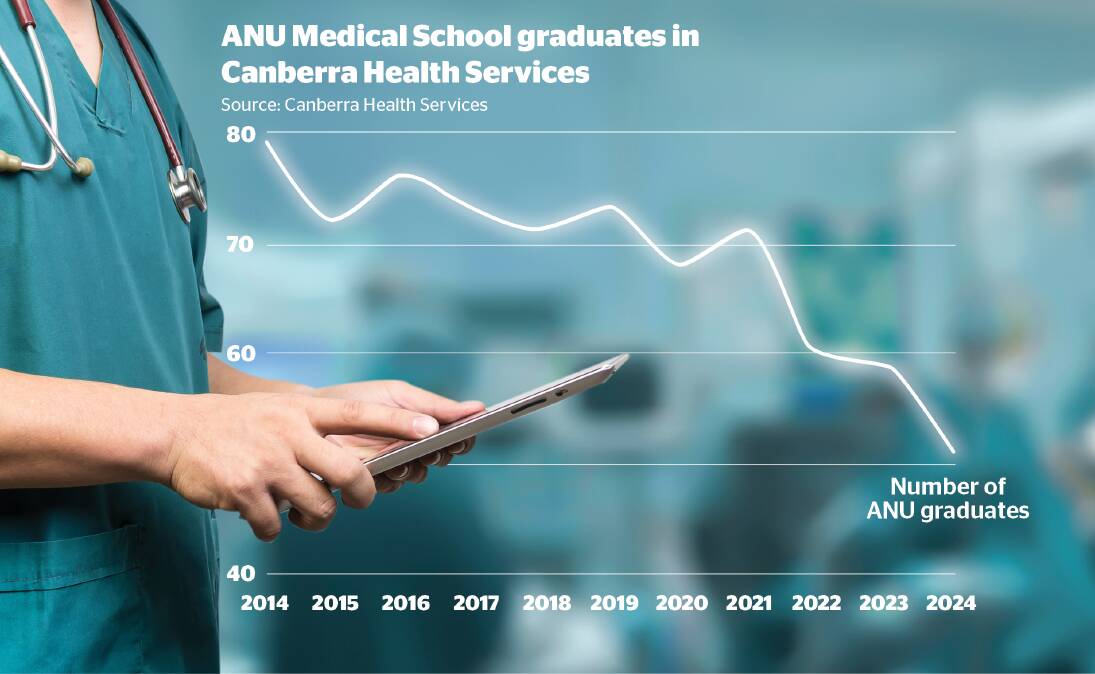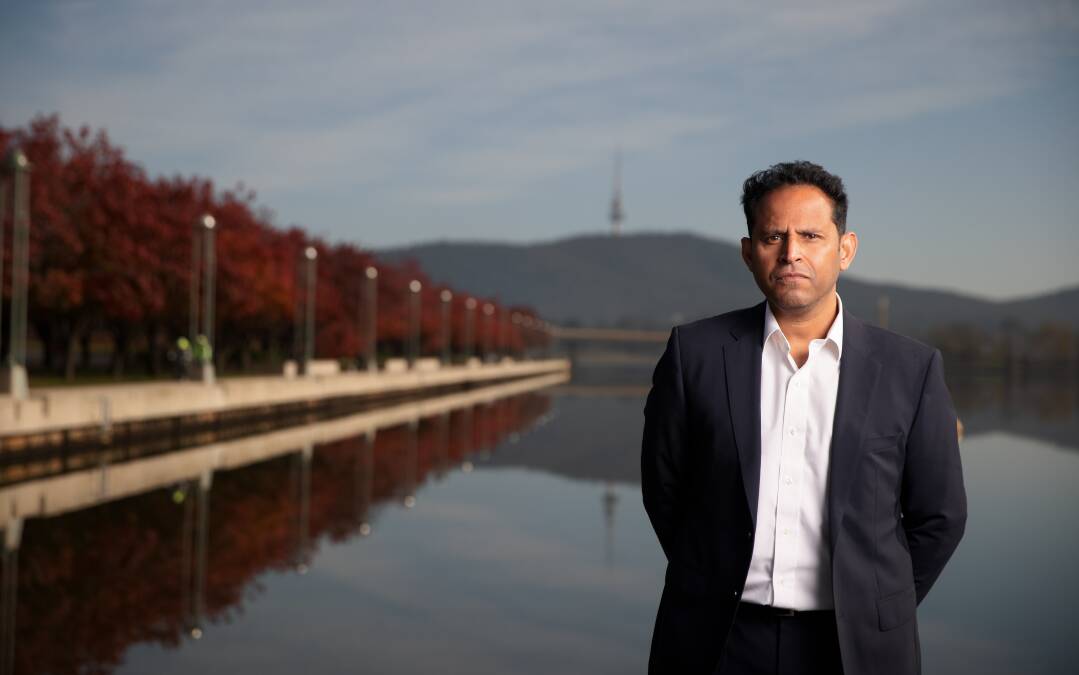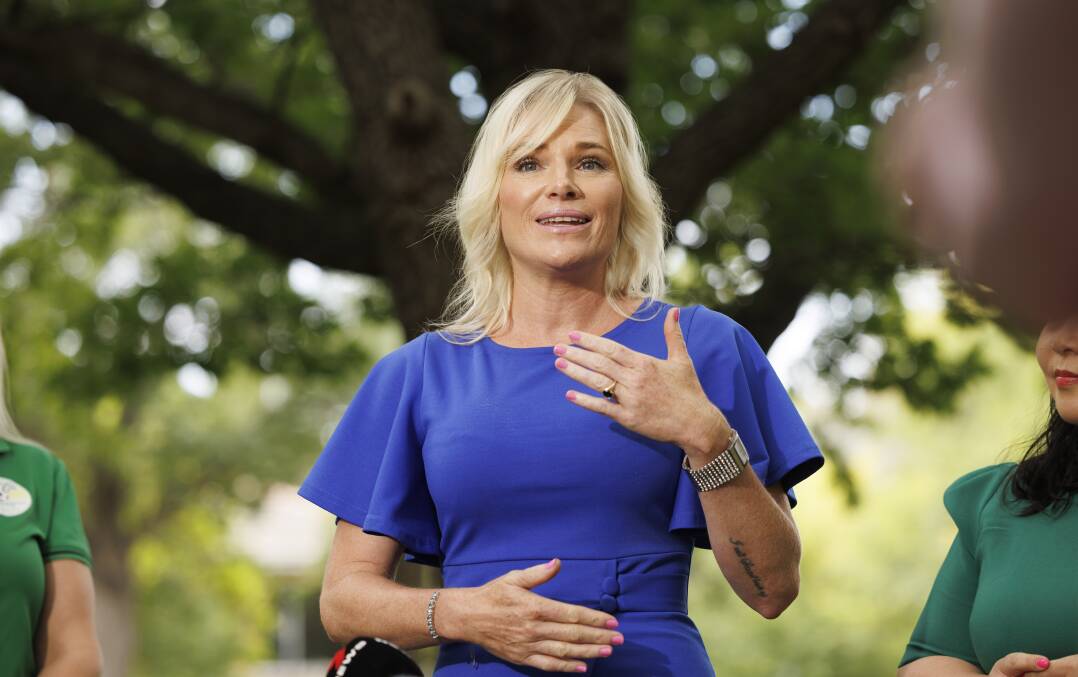Canberra's medical community has expressed alarm at an exodus of local medical students, as graduates choose to leave the ACT at the end of their studies.
The number of local graduates choosing to work in Canberra Health Services has declined over the past decade with just over half the services' interns this year coming from the Australian National University's medical school.
Figures show only 53 per cent of medical interns in Canberra Health Services graduated from ANU. This has dropped from 63 per cent in 2023.
There has been a gradual decline over the past decade. In 2014, 84 per cent of interns at Canberra Health Services were from ANU.
The number of ANU graduates was "definitely too low", Australian Medical Association ACT branch president Walter Abhayaratna said. He said the reason the ANU medical school was founded was because they wanted to attract people from the region who would ultimately stay through their medical career.

Professor Abhayaratna said reputation issues may have contributed to fewer ANU graduates choosing to take up the positions.
He also said more internships had opened in bigger cities and students were deciding to go there.

"Medical students who are becoming doctors have opportunities and they can go to bigger centres," Professor Abhayaratna said.
Opposition health spokeswoman Leanne Castley said the decline was concerning and Canberra Health Services needed to do more to ensure ANU graduates were staying in the city.
"Keeping ANU medical graduates in the local hospital system and local health workforce is fundamental to easing pressure on the ACT hospital and healthcare system," she said.
"Clearly whatever Canberra Health Services is offering graduates is not enough to keep them from going elsewhere for their internships."
Ms Castley also pointed to training accreditation issues in various departments in Canberra Health Services as a possible reason for the decline.
"There have also been ongoing issues with training accreditation for trainee doctors at the Canberra Hospital, which in some cases has caused junior doctors to move interstate," she said.
While the number of ANU graduates has declined, a Canberra Health Services spokesman said the ACT was able to fill all positions. Of the 96 internship places in 2024, 51 were from ANU, 22 were from other Australian medical schools and 23 were from overseas.
"We understand that the ACT was the only jurisdiction able to fill all available medical intern positions, which is a great outcome given the number of positions across Australia currently outstrips the number of domestic medical graduates," he said.
The spokesman also blamed COVID for the decline, saying more students were choosing to return to their home state or country to work. About 75 per cent of ANU graduates are from interstate.

"ANU graduates may be from the ACT, interstate or overseas, and they may elect to undertake their internship in another jurisdiction for a variety of reasons, including returning home after study, lifestyle, family reasons or professional opportunities," the spokesman said.
"We are working with the ANU on ways to increase our number of local graduates, however we will always need to supplement local graduates with new team members from other jurisdictions."
Professor Abhayaratna said Canberra Health Services needed to place more emphasis on the hospital on education and research and, subsequently, this would improve the standing of the organisation. He said much of the trainees work was done after hours but it needed to be core business.
"We have traditionally done training after hours and that's a burden for both the junior doctors in terms of work life balance but, also, it's not great for senior doctors," he said.
"You want the training programs to be embedded and not part of after hours activity, it's important that we make it part of usual business."







